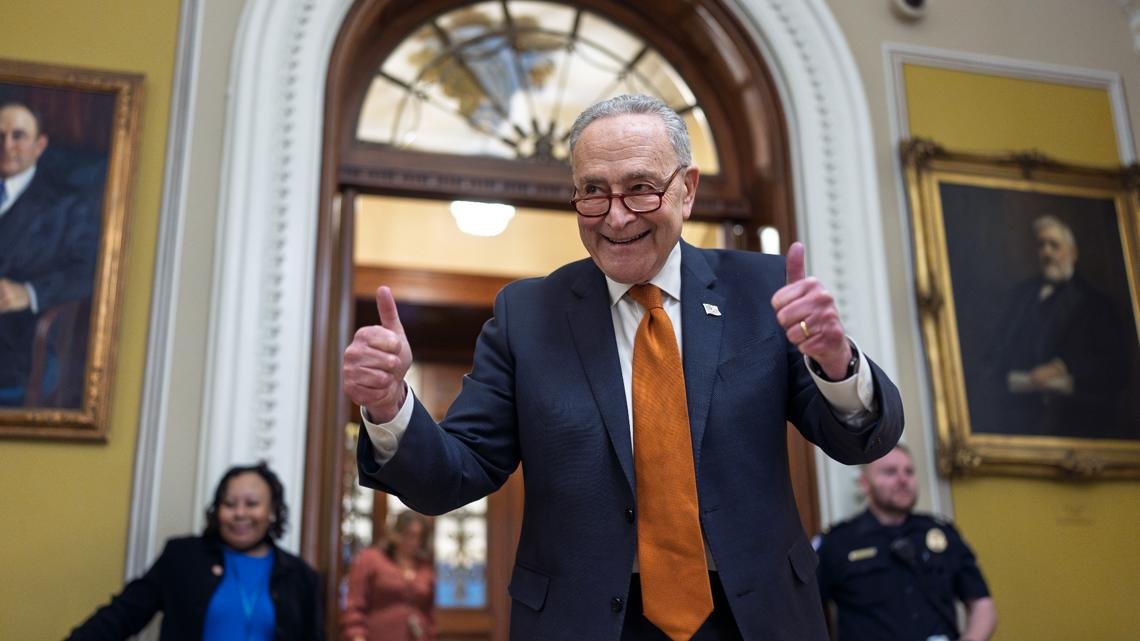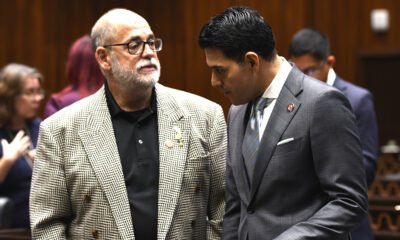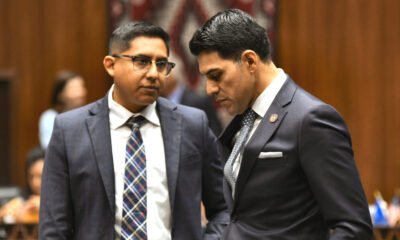home
Government Funding Bill Passes Congress, Heads to Biden to Prevent Shutdown

In a critical move to stave off a government shutdown, the Senate passed a bipartisan funding plan early Saturday morning. The proposal, which includes temporary funding for federal operations and emergency disaster aid, notably left out President-elect Donald Trump’s insistence on a debt limit increase.
With a looming deadline, House Speaker Mike Johnson emphasized the need for Congress to “meet our obligations” to prevent a shutdown ahead of the Christmas season. However, uncertainty surged after Trump reiterated his demand for the debt ceiling to be addressed immediately, warning that closures should “start now” if his stipulations were not met.
The House advanced Johnson’s bill with a significant 366-34 vote. The Senate then adopted it with an 85-11 tally, just as the clock struck midnight. With the passage finalized, the White House declared the cessation of shutdown preparations.
“This is a good outcome for the country,” Johnson remarked post-vote, sharing that Trump expressed satisfaction with the resolution. President Joe Biden, taking a relatively subdued role in negotiations, is anticipated to sign the bill into law soon.
Senate Majority Leader Chuck Schumer confidently stated, “There will be no government shutdown.” Johnson’s latest attempt to secure funding underscores the continuing struggles he faces, especially following rebellious sentiments within his party and amid exerted pressure from Trump and other influential figures, like Elon Musk.
Trump’s last-minute demand posed substantial challenges, as GOP factions harbored skepticism towards raising the debt ceiling amid calls for budget cuts. Instead of risking a funding package rejection, Republicans found themselves relying on bipartisan support due to internal party divisions.
The revised package, significantly condensed to 118 pages, allocates funds at current levels until March 14, alongside $100 billion earmarked for disaster relief and $10 billion for agricultural assistance. Trump’s request to raise the debt ceiling has been deferred to be revisited with other priorities in the coming year, as Republicans agreed to a handshake deal to examine it alongside other fiscal issues.
Despite previous bipartisan overtures, House Democrats demonstrated reluctance at the latest proposal’s alterations. Representative Rosa DeLauro voiced concerns over Musk’s influence in these negotiations, asking, “Who is in charge?”
In the end, Democrats contributed more votes for the measure’s approval than their Republican counterparts, with several conservative members voting against it. House Democratic Leader Hakeem Jeffries pointed out their efforts to prevent shutdowns that could jeopardize the economy and working-class Americans.
Trump’s involvement from Mar-a-Lago, orchestrating legislative matters alongside Musk, illustrates his significant yet nuanced role within Congress. With plans for extensive budget cuts and a tax package anticipated next year, the incoming administration clearly aims to alter the financial landscape. Trump’s recent comments underscore a desire to push the contentious debt ceiling negotiations well into his new term, shifting the onus on Johnson to deliver effective solutions.
As shutdown preparations escalated, government employees braced for potential disruptions to their paychecks over the holiday season. Dialogue between the White House and congressional leadership continues, as the clock ticks toward the new Congress, which convenes on January 3, with Johnson’s position as speaker under scrutiny.
With the specter of shutdown still looming, Johnson’s upcoming decisions will be pivotal for both his leadership and the broader governance context.


















